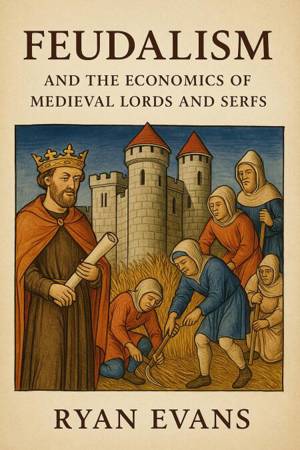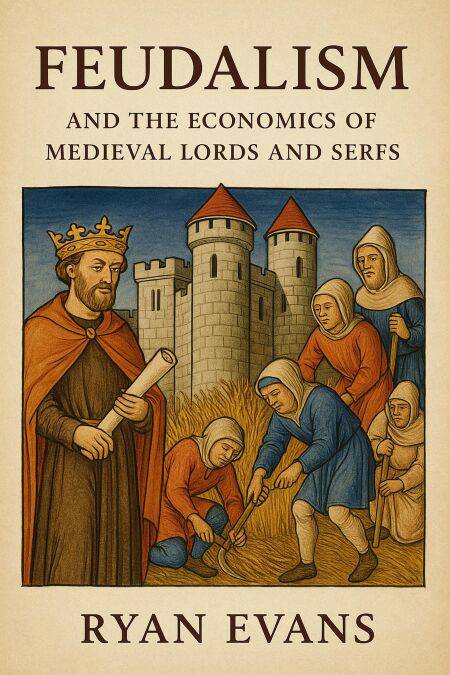
- Afhalen na 1 uur in een winkel met voorraad
- Gratis thuislevering in België vanaf € 30
- Ruim aanbod met 7 miljoen producten
- Afhalen na 1 uur in een winkel met voorraad
- Gratis thuislevering in België vanaf € 30
- Ruim aanbod met 7 miljoen producten
Omschrijving
In Feudalism and the Economics of Medieval Lords and Serfs, historian Ryan Evans offers a sweeping and deeply analytical exploration of the economic underpinnings of feudal society in medieval Europe. Spanning from the early Middle Ages through the dawn of modern capitalism, this scholarly work examines how the relationships between lords and serfs shaped not only the rural economy but also broader social, political, and urban developments that led to the eventual unraveling of the feudal order.
Through detailed historical commentary, analysis of primary sources such as manorial rolls, legal codes, and charters, and the integration of modern economic theory, Evans reconstructs the intricate web of labor, land, and power that sustained the manorial system. From the functioning of the three-field system and corvée labor to the rise of merchant towns and the monetization of rents, the book traces the slow but steady transformation of medieval economic life.
Evans also delves into the human dimensions of feudalism—examining the lives of women, the legal framework of manorial justice, peasant revolts, and the impact of crises like the Black Death—revealing how these forces chipped away at the foundations of serfdom and restructured society. With rich narrative and academic rigor, this book is essential reading for scholars and students of medieval history, economic history, and the origins of modern European society.
Specificaties
Betrokkenen
- Auteur(s):
- Uitgeverij:
Inhoud
- Taal:
- Engels
Eigenschappen
- Productcode (EAN):
- 9798230574514
- Verschijningsdatum:
- 18/04/2025
- Uitvoering:
- E-book
- Formaat:
- ePub

Alleen bij Standaard Boekhandel
Beoordelingen
We publiceren alleen reviews die voldoen aan de voorwaarden voor reviews. Bekijk onze voorwaarden voor reviews.











